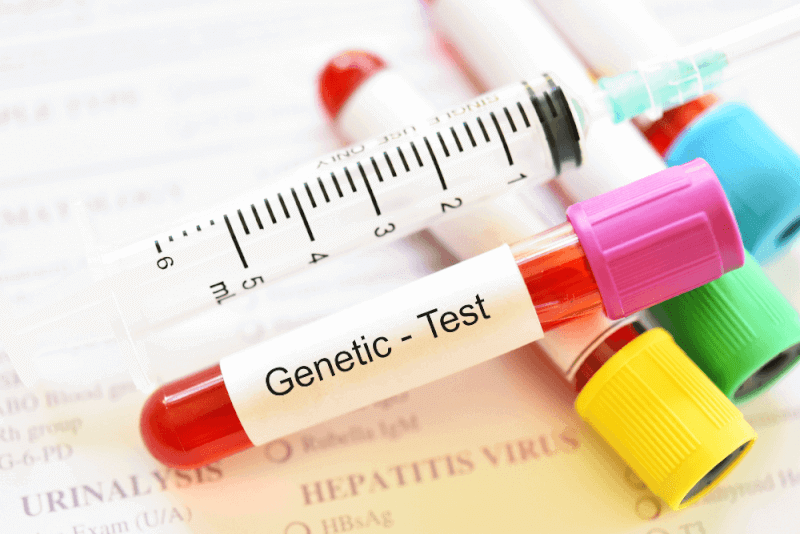30-Second Summary
- It is a condition in which the thyroid gland underperforms and fails to produce enough thyroid hormones.
- Symptoms of hypothyroidism include fatigue, weight gain, dry skin, hair loss, constipation, menstrual irregularities, depression, and memory problems.
- It may be caused by iodine deficiency, Hashimoto's disease, radiation exposure, certain medications, and thyroid surgery.
- Diagnosis is made by checking TSH and T4 hormone levels.
What is Hypothyroidism?
Hypothyroidism is a low secretion of thyroid hormone. This occurs due to underactive thyroid glands. Low secretion of these hormones, which are responsible for regulating metabolism, can cause fatigue, hoarseness of the voice, dryness and flaking of the skin and enlargement of the tongue.
While T3 and T4 levels are normal in the blood values of hypothyroidism patients, TSH levels are high. If the disease is left untreated, patients begin to gain weight. Afterwards, patients’ body temperature drops and their consciousness starts to blur. Finally, constipation is added to these symptoms.
Patients with these symptoms should consult a specialist and have the necessary tests done. If hypothyroidism is diagnosed, they are treated with daily hormone tablets.
Symptoms of Hypothyroidism
The symptoms of hypothyroidism, which develops due to underfunctioning of the thyroid gland, are as follows.
- Scarcity or absence of menstrual bleeding in women,
- Delayed puberty in boys,
- Forgetfulness,
- Lack of concentration,
- Abnormal weight gain,
- Excess appetite,
- Constipation
- Hoarseness
- Reduced sweating,
- Edema of the hands and feet,
- Inability to tolerate cold environments,
- Depressed mood,
- Unhappiness,
- Fatigue,
- Do not get tired quickly,
- Slowness in movements,
Causes of Hypothyroidism
There is nothing that can be done to prevent hypothyroidism. This is because the immune system attacks the thyroid gland and destroys its tissues. As a result, some diseases can occur. The most well-known of these diseases is Hashimoto’s thyroid, known as inflammation of the thyroid glands.
In Hashimoto’s disease, the immune system recognizes the thyroid glands as foreign and attacks them. In some patients, this does not happen for life, while in others, the immune system may render the thyroid gland unable to function.
The other most common causes of reduced thyroid hormone secretion are toxic goiter and thyroid cancer. Other causes of hypothyroidism are.
- Those whose mothers have thyroid disease,
- People taking medicines such as interferon, lithium or amiodarone,
- Exposure to radiation,
- Living in iodine-poor areas,
- An iodine-poor diet,
- Pituitary gland problems,
- Congenital underdevelopment of the thyroid gland,
- Thyroid surgery,
- Receiving radioactive iodine treatment,
- Having type 1 diabetes,
- Having vitiligo,
- Having diseases of the immune system,
In addition, hypothyroidism is 4 times more common in women than in men. This is thought to be due to the female hormones progesterone and estrogen. However, no evidence has yet been found.
How is Hypothyroidism Diagnosed?
Thyroid function tests are used to diagnose hypothyroidism. In these blood tests, TSH hormone and T4 hormone levels are examined. Patients are diagnosed with hypothyroidism if the TSH hormone value is too high and the T4 hormone is too low.
If patients have high TSH levels but normal T4 hormone levels, they are at risk of developing hypothyroidism in the future.
In addition to blood tests, specialists also examine the thyroid glands by physical examination. If patients have a family history of thyroid diseases, symptoms such as protruding eyes, difficulty in swallowing and swollen thyroid glands, then thyroid ultrasound is used to visualize the thyroid glands and look at the size of the thyroid glands.
If nodules are detected in the thyroid glands, thyroid scintigraphy and, if necessary, fine needle aspiration biopsy are performed. However, the presence of a nodule in the thyroid gland does not always mean that it is malignant.
Hypothyroidism Treatment
Hypothyroidism is a disease that needs lifelong treatment. Drugs containing T4 hormone are used in the treatment of the disease. Improvement of symptoms after the start of medication 2 It takes up to a week. Treatment is started with low doses, increased every 5-6 weeks and adjusted to a single dose when the TSH hormone reaches normal levels. Afterwards, patients are monitored for hormone levels in 6-month or 1-year cycles.
If the patient has a condition such as pregnancy, coronary heart disease or advanced age, hormone levels should be monitored more frequently. The reason for paying attention to this group is that the heart works harder due to thyroid hormone medication. For this reason, the dosage should be well adjusted.
If hypothyroidism is not treated, many metabolic problems arise in patients. People who do not receive treatment or do not continue treatment can develop life-threatening conditions such as enlarged heart, clot formation, heart failure, hypertension and arteriosclerosis.
In addition, if the fluctuations in hormone levels are small and the patients’ complaints are not excessive, patients can be monitored with regular controls before starting treatment.
Hypothyroidism Nutrition
Due to the metabolic effects caused by hypothyroidism, both treatment should be continued and nutrition should be regulated.
Iodine
Iodine is an essential element for the thyroid gland to function normally. For this, patients should include iodine in their daily diet. However, depending on the factors that cause hypothyroidism, iodine consumption should be determined by experts. If the cause of the disease is iodine deficiency, then iodine consumption should be increased. However, if the cause of hypothyroidism is a cause such as Hashimoto’s disease, then iodine consumption should be reduced. Under normal conditions, patients who eat a balanced diet and do not consume excessive salt get enough iodine daily.
Iron
Iron deficiency is a mineral involved in the enzyme activity of thyroid cells. For this reason, iron levels of patients with hypothyroidism should be checked and iron supplements should be given if there is a deficiency.
Selenium
In addition to its antioxidant and anti-inflammatory effects, it is also one of the building blocks of some proteins involved in thyroid hormone synthesis. In addition, selenium deficiency is known to be associated with Hashimoto’s and autoimmune thyroid diseases. In addition to this information, studies on patients with Hashimoto’s disease have shown that antibody levels can be reduced with selenium support.
On the other hand, high doses of selenium have a toxic effect on the body. For this, it is recommended to determine the amount of selenium that should be taken daily and to take this amount both through nutrition and food supplements. The point to be considered in the use of supplements is that patients should interrupt the use of selenium supplements every 3 months to prevent toxicity.
Foods rich in selenium include some oil seeds, whole grains, white meat, red meat, sardines, turkey, sunflower seeds, lentils, dried beans, spinach, mushrooms, eggs, lamb liver and seafood. However, consumption of seafood should be restricted as it contains iodine.
Gluten
Celiac patients are sensitive to gluten. In addition, celiac disease is often associated with autoimmune thyroid diseases. For this reason, people with hypothyroidism should not consume gluten. With a strict diet, thyroid function improves and patients’ antibody levels decrease.
Weight Increase
Low thyroid hormones cause a decrease in metabolic rate. This predisposes patients to obesity. To prevent this, patients need to lose weight. Improvements in thyroid function are seen in hypothyroidism patients who lose weight. In addition, the positive effects are enhanced by regular exercise.
Blood Pressure and Hyperlipidemia
Cholesterol levels are often elevated in patients with hypothyroidism. With the normalization of hormone levels, this condition also improves. However, it is important for patients to eat a diet low in animal fats and exercise regularly. Patients with high cholesterol should get 10% of their daily calories from fats and sugar and 45-50% from carbohydrates. Patients are also advised to increase the amount of fiber in their diet.
Another complication often seen in patients with hypothyroidism is an increase in blood pressure values. Since hypertension has many effects on cardiovascular health, these patients should eat a diet rich in magnesium, potassium, calcium, fiber and protein.
Insulin Resistance
Insulin resistance, the body’s unresponsiveness to insulin, causes weight gain. It is therefore associated with hypothyroidism. Patients should therefore increase their consumption of fruits and vegetables and reduce their intake of fats and carbohydrates.
Omega 3
Omega 3 fatty acids are used to reduce inflammation in the thyroid. In addition, omega 3 fatty acids are effective in protecting the function and tissues of the thyroid gland. Omega 3 fatty acids are also used to reduce the risk of cardiovascular diseases, which increases with hypothyroidism. If these fatty acids are low in the body, it causes a decrease in thyroid hormone secretion in patients and disruption of normal brain function.
Vitamin D
Low levels of vitamin D, which can be obtained from foods such as mushrooms, milk, salmon and egg yolk, are associated with both hypothyroidism and reduced bone density.
Zinc
Zinc is also one of the minerals used to synthesize thyroid enzymes. Zinc deficiency in the body causes symptoms such as lethargy, depression, cramps, dry skin and hair loss. Salmon, organic eggs, pumpkin, seafood and chia seeds are rich in zinc.
Vitamin A
Vitamin A is a vitamin involved in both the production and secretion of thyroid hormones. For this reason, patients should regularly take vitamin A from foods such as carrots, pumpkin, sweet potatoes, dark green vegetables and spinach.
Vitamin E
Vitamin E is effective in reducing oxidative stress and thus contributes to normalizing the immune system response. Foods rich in vitamin E include olives, avocados, raw almonds, chard, green leafy vegetables and spinach.
B Vitamins
Consuming foods rich in B-complex vitamins helps both to reduce the complaints of patients and to produce more thyroid hormone. These foods include tuna, salmon, eggs, pistachios, red meat, spinach, bell peppers.
Tyrosine
Used by the thyroid glands together with iodine, tyrosine also has an important role in the immune system. Tyrosine supplements help to both reduce patients’ symptoms and improve thyroid function. Foods high in tyrosine include cheese, eggs, chicken, oats, turkey meat and beans.
Vitamin C
Adequate use of vitamin C can prevent tissue damage in the thyroid gland. In addition, it provides a more acidic environment in the stomach, allowing drugs to be absorbed faster. Foods rich in vitamin C include kiwi, orange, grapefruit, broccoli, lemon, strawberry and bell pepper.
















